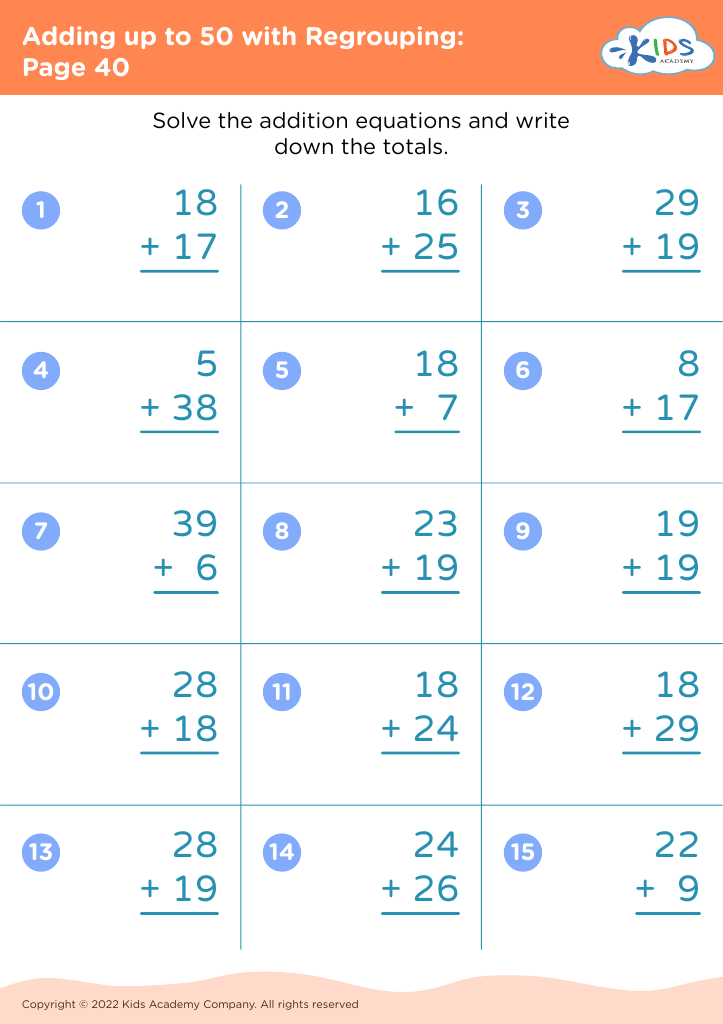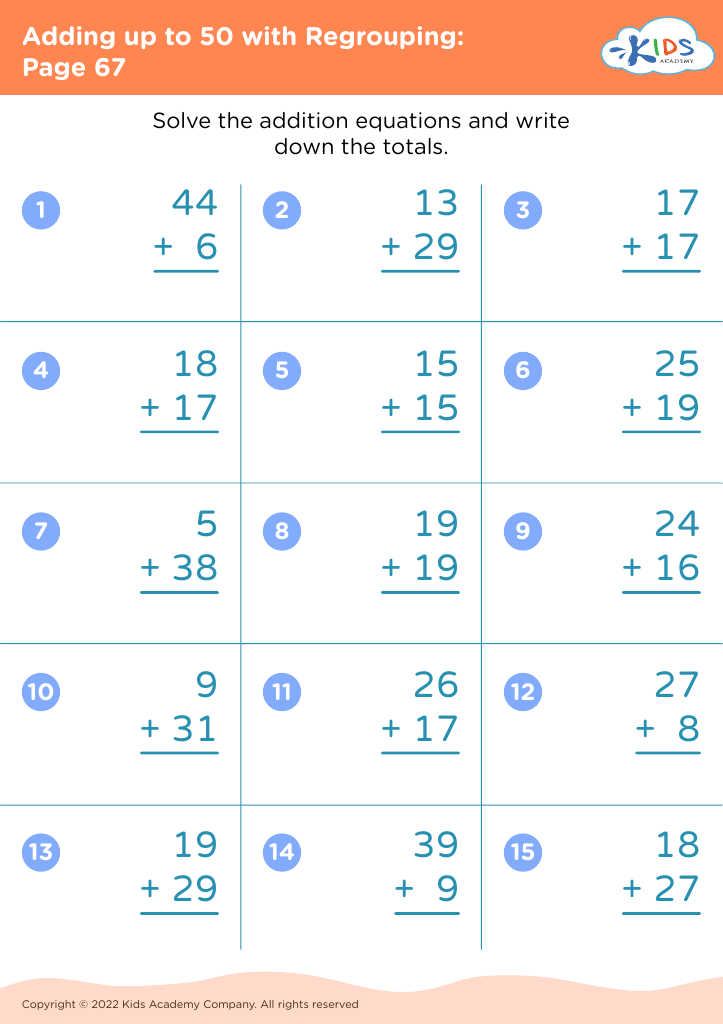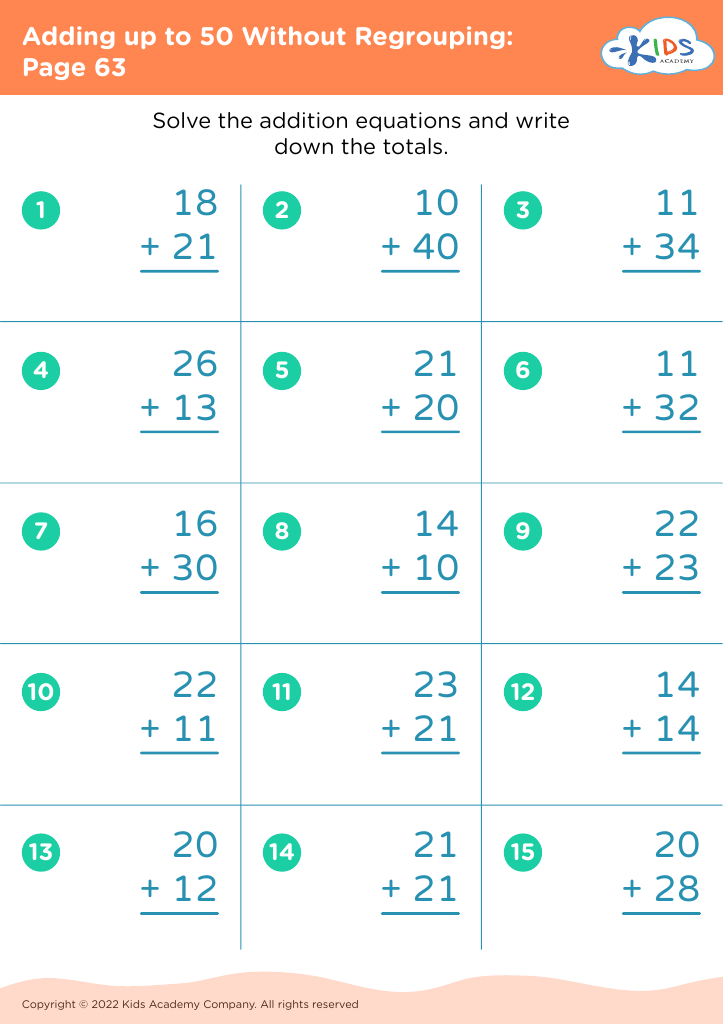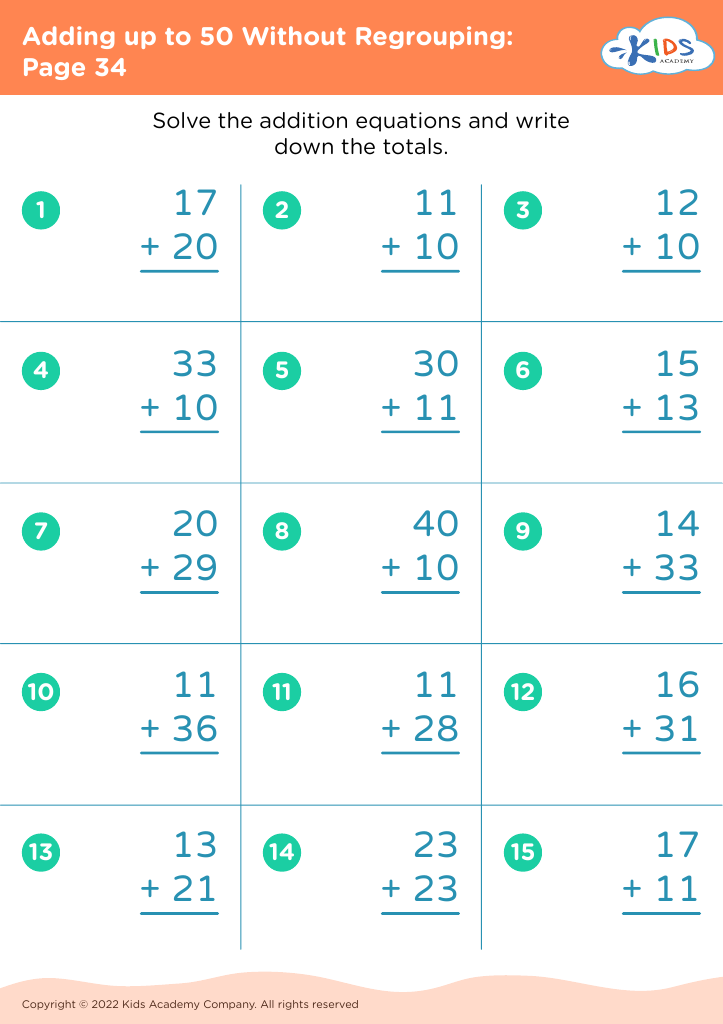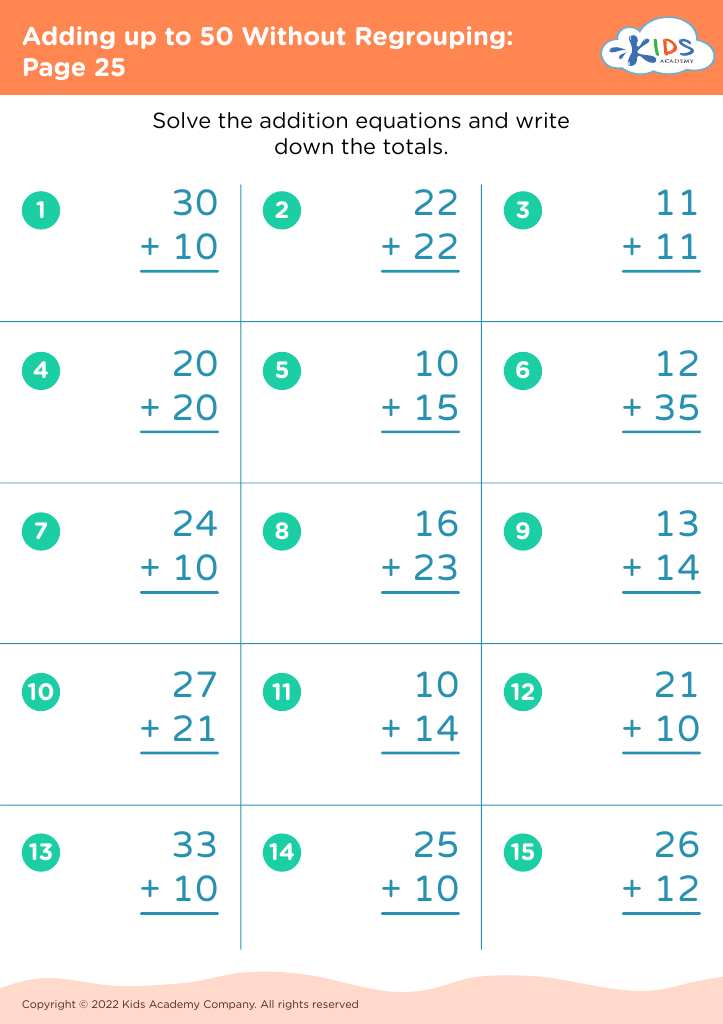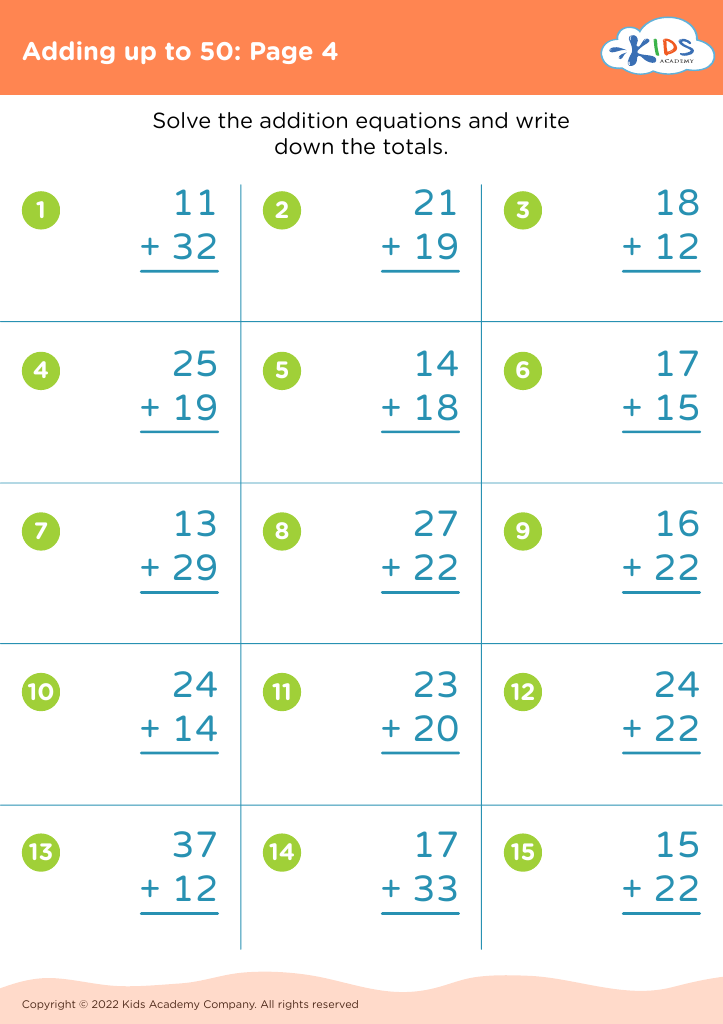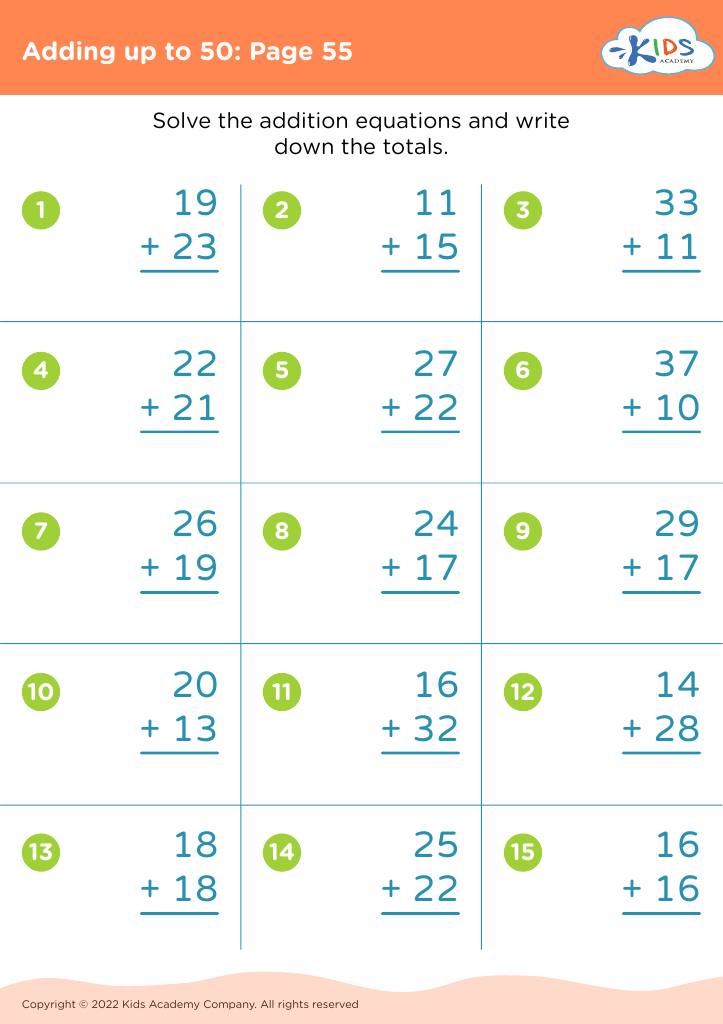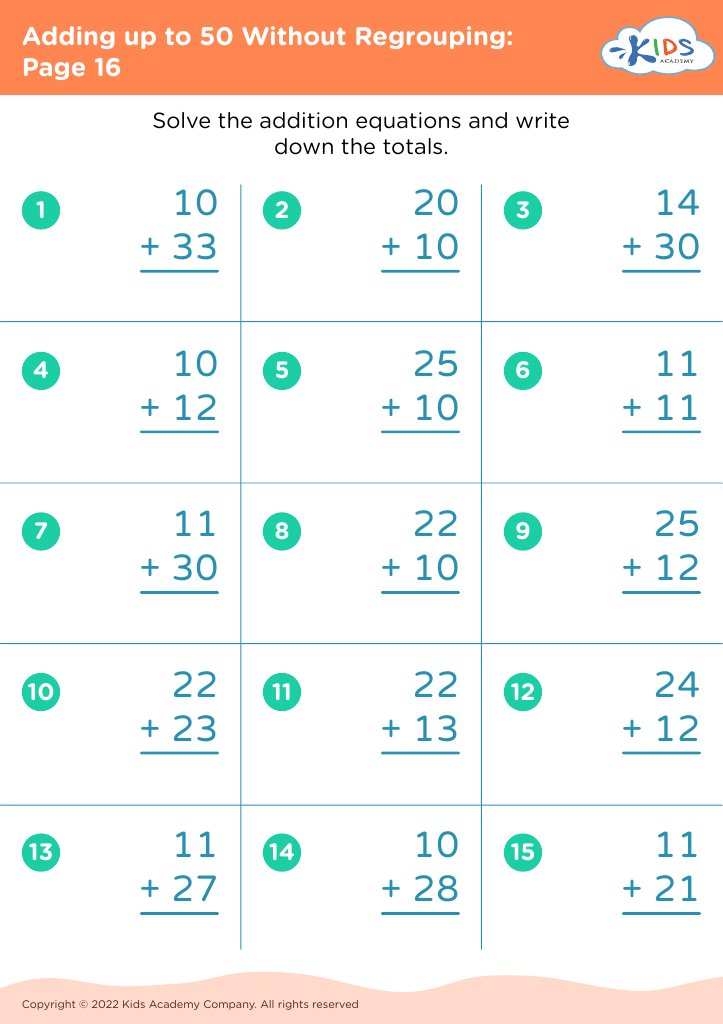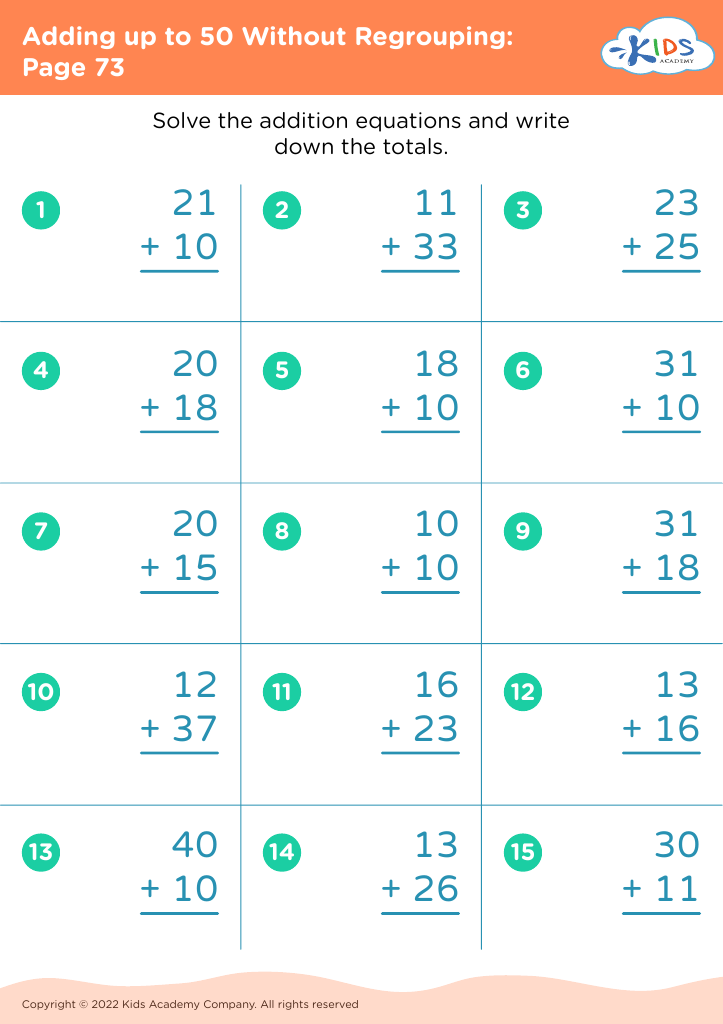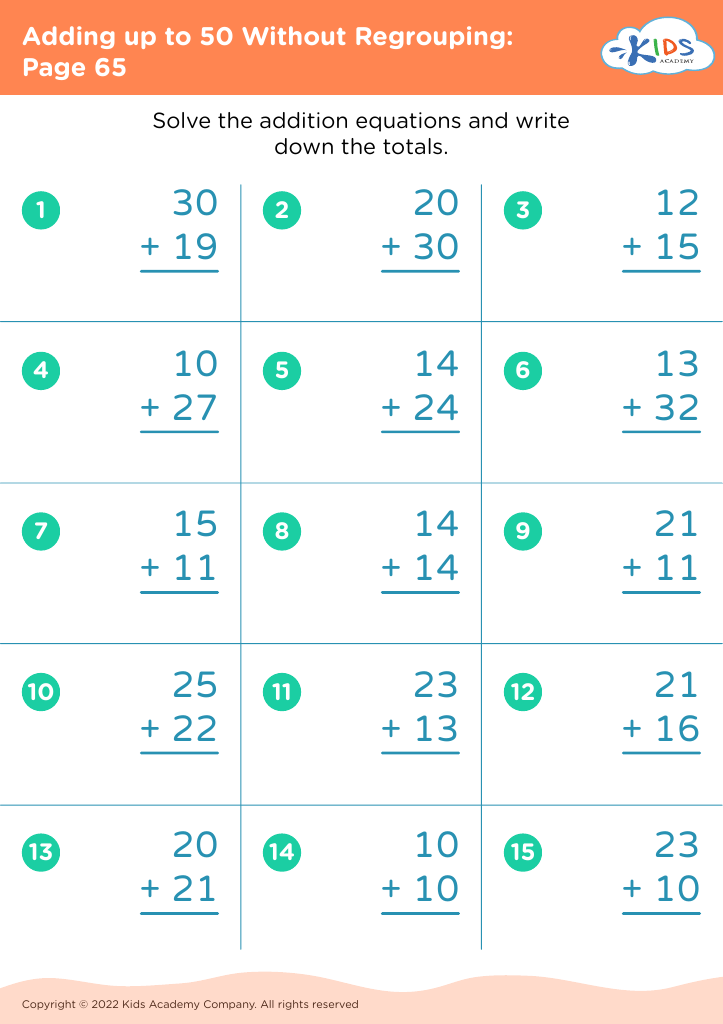Fraction simplification Adding up to 50 Worksheets for Ages 4-7
20 filtered results
-
From - To
Explore our engaging "Fraction Simplification Adding Up to 50 Worksheets" designed specifically for children ages 4-7! These worksheets make learning basic fraction simplification fun and interactive, seamlessly integrating hands-on activities that enhance comprehension. With a focus on visual aids and straightforward exercises, kids can practice simplifying fractions while reinforcing their addition skills up to 50. Ideal for classroom settings or home study, our easy-to-use resources provide a solid foundation in math concepts essential for early learners. Download and print these worksheets today to help your child build confidence and proficiency in fractions! Perfect for nurturing young mathematicians!
Fraction simplification and addition play a crucial role in developing foundational math skills for children aged 4 to 7. Understanding these concepts not only enhances numeracy skills but also helps children grasp the idea of parts of a whole, which is fundamental for their overall mathematical understanding.
When children learn to simplify fractions, they develop critical thinking skills as they explore ways to represent numbers. This process encourages them to recognize patterns and relationships between numbers, laying the groundwork for more complex math tasks later on.
Moreover, engaging with addition—especially through playful activities that involve reaching sums of 50—can bolster a child's confidence in their ability to tackle math problems. It helps in fostering a positive attitude toward math as a subject, making it less intimidating. Furthermore, mastering addition and fraction simplification prepares young learners for more advanced topics in math, ensuring they have a solid work ethic and persistence when approaching challenging concepts.
Parents and teachers should actively support these learning experiences, as they encourage not only mathematical skills but also critical life skills, such as problem-solving, patience, and resilience. In essence, focusing on these early math concepts lays the foundation for future academic success and a lifelong appreciation for learning.
